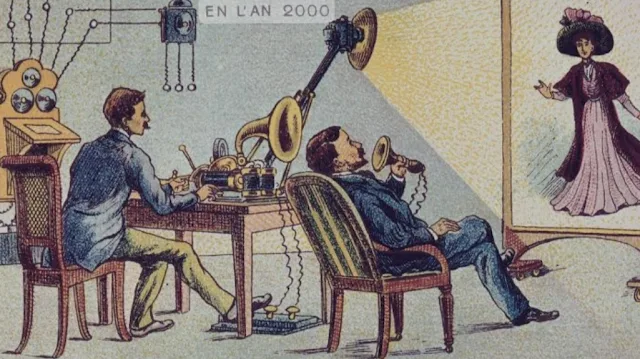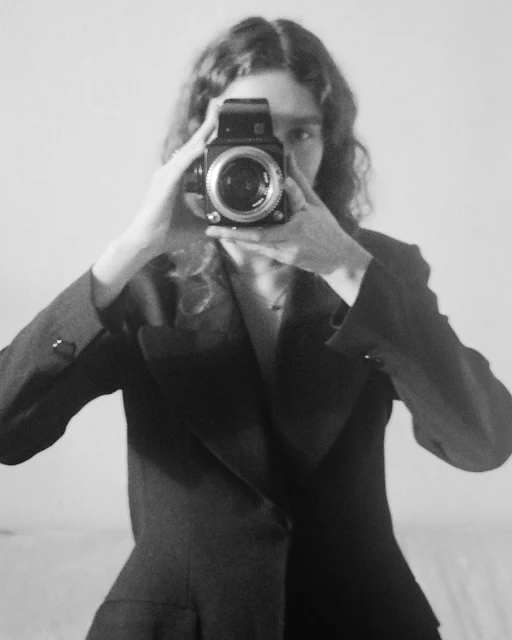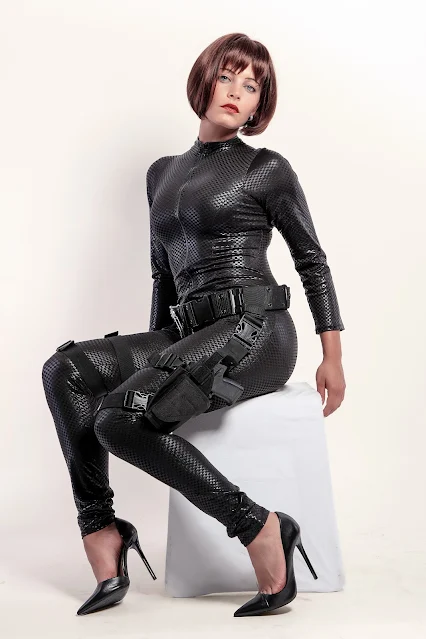In the realm of entertainment, women have often grappled with ingrained stereotypes, relegating them to limited roles and confining narratives. As actress Geena Davis astutely put it, "If they can see it, they can be it." Unfortunately, for decades, the 'it' in this equation often remained depressingly limited for women in film and TV.
The history of women in film and television has been shadowed by antiquated beliefs that have perpetuated gender disparities and inequality. The conventional roles relegated to women, from the young lady in distress to the sidekick, the stereotypical 'love interest' or the 'token female, have perpetuated gender biases that extend far beyond the screen. These stereotypes have not only perpetuated harmful misconceptions about women but also reduced women to one-dimensional characters, impeding their ability to portray the full spectrum of human experiences, and reinforcing harmful perceptions that seeped into the collective consciousness.
Breaking away from these established norms is a pivotal step in reshaping the landscape of entertainment and creating space for diversity, equity, and inclusion. The importance of shedding these stereotypes reaches far beyond the industry itself, as media significantly influences societal attitudes and behaviors. The unshakable belief that women are more than what traditional narratives portray is driving the transformative journey of women in entertainment.
To explore the role of women in entertainment is to engage in a profound examination of the socio-cultural narratives that underpin the industry. Women's representation in film and TV is not just a matter of opportunity and visibility; it is a crucial gateway to empowering the broader female population. By challenging the preconceived notions of what women can achieve, these trailblazing women in the entertainment industry are shattering the glass ceiling, inspiring future generations to pursue their dreams with unbridled determination. The discussion of women breaking stereotypes in film and TV is not only a reflection of progress but a beacon of hope, signaling a paradigm shift towards a more equitable and diverse entertainment world.
The portrayal of women in the entertainment industry throughout history
The portrayal of women in the entertainment industry has been a reflection of societal norms and values throughout history. In the early days of cinema and television, women were often relegated to roles that adhered to traditional gender stereotypes. They were commonly depicted as a young unmarried woman in distress, romantic interests, or domestic caretakers.
Pioneering women have played a pivotal role in challenging these stereotypes and reshaping the narrative of women in entertainment. Figures like Katharine Hepburn, who defied conventional standards of femininity, and Hattie McDaniel, the first African-American woman to win an Academy Award, paved the way for greater diversity and complexity in female characters. The evolving landscape of women's roles is a testament to the gradual transformation of gender dynamics within society.
The release of films such as "Thelma & Louise" and "Alien," which featured strong, independent female protagonists, breaking the mold of what women could achieve in film. Over time, women have not only taken on more diverse and complex roles on screen but have also increasingly assumed positions of influence behind the scenes, contributing to a more equitable and varied representation in the industry. For instance, as more women entered the industry as writers, directors, and producers, they introduced fresh perspectives and stories that departed from traditional gender norms.
The impact of feminism on women's portrayal in media also cannot be overstated. As the feminist movement gained momentum in the 20th century, it had a profound influence on the way women were represented in film and television. Feminism challenged and deconstructed traditional gender roles, opening up new possibilities for female characters on screen. It brought attention to the importance of women's voices in storytelling, leading to a shift in the types of narratives that were being produced. The portrayal of women in the media became more reflective of their diverse experiences, aspirations, and challenges, highlighting the interconnectedness between social change and the entertainment industry.
Changing Narratives, Breaking Stereotypes Onscreen and its Impact on Society
The landscape of film and television is experiencing a profound transformation as women increasingly take on diverse and empowering roles, effectively breaking the longstanding stereotypes that once limited their on-screen potential. Recent films and TV series have given rise to an array of powerful female characters who defy the traditional gender norms that have persisted for far too long.
Characters like Wonder Woman, portrayed by Gal Gadot, and Rey from the "Star Wars" sequel trilogy, played by Daisy Ridley, challenge not only physical stereotypes but also exhibit leadership qualities, resilience, and independence. In TV series, characters like Claire Underwood from "House of Cards" and Daenerys Targaryen from "Game of Thrones" showcase women in complex, multifaceted roles that emphasize their strategic thinking and political acumen. This shift signifies a significant departure from the conventional narrative, where women were often cast in one-dimensional, passive roles.
These characters serve as inspiring examples of how women can break stereotypes in the industry. They subvert the traditional gender roles by exhibiting strength, intelligence, and agency. Instead of being confined to predictable narratives, these characters occupy a spectrum of roles, from fierce warriors to compassionate leaders, broadening the horizons of representation for women on screen. The influence and the impact of portrayals of diverse and empowering female characters go beyond the entertainment world, as they send a powerful message to viewers about the potential of women in all aspects of life. These characters have the potential to reshape societal perceptions and attitudes.
When audiences witness women on screen who defy stereotypes, it challenges their preconceived notions about gender roles. It encourages viewers, both young and old, to question the limitations placed on women in society. By identifying with these characters, individuals can develop a sense of empowerment and agency in their own lives, as they see the potential for women to succeed in various roles and break free from the confines of traditional expectations.
Media representation also has a profound impact on shaping societal values and beliefs. Diverse and empowering female characters are driving social change by highlighting the need for greater gender equality and representation in all aspects of life. By portraying women as strong, capable, and multifaceted, the media is pushing the boundaries of what is possible for women, not just in the realm of entertainment but also in workplaces, leadership positions, and personal relationships. Case studies of these transformations can be found in numerous fields, from politics to business, where empowered women are challenging the status quo and fostering a more equitable and inclusive society. The influence of these characters serves as a reminder that change is not only necessary but achievable, and it all begins with the narratives we tell and see on our screens.
Women Behind the Camera
Behind the scenes in the entertainment industry, women have been making significant strides in production and direction, reshaping storytelling and representation in the process. Female directors, producers, and writers have brought fresh and diverse perspectives to the industry, contributing to a more nuanced portrayal of women on screen. A standout example is director Ava DuVernay, whose groundbreaking work includes the critically acclaimed film "Selma" and the powerful Netflix series "When They See Us." Her commitment to telling stories that highlight social justice issues and marginalized voices has left an indelible mark on the industry, pushing for greater inclusivity and authenticity in narratives.
Furthermore, women in key behind-the-scenes roles have defied industry norms and overcome substantial challenges. For instance, Kathryn Bigelow made history as the first woman to win the Academy Award for Best Director for her work on "The Hurt Locker." This achievement marked a turning point in the industry, highlighting the immense talent and potential of female directors. The challenges faced by women in these roles, from funding disparities to gender bias, have been formidable. Still, the determination and creativity of figures like Bigelow, Greta Gerwig, and Chloé Zhao have not only paved the way for future generations but also demonstrated the transformative power of women in shaping the storytelling landscape of film and television.
Challenges and Triumphs
The challenges faced by women in the entertainment industry are as varied as they are persistent. Gender disparities in pay and opportunities continue to be a glaring issue, with female actors often earning significantly less than their male counterparts for equivalent work. This wage gap not only perpetuates inequality but also sets a discouraging example for aspiring women in the industry. Ageism is another hurdle that many women face, as unrealistic beauty standards often lead to limited roles for older actresses, whereas older male actors tend to have more opportunities.
These age-based stereotypes create a skewed portrayal of women's roles in society, affecting the self-esteem and aspirations of women both within and outside the entertainment world. Furthermore, the perpetuation of limited and one-dimensional female characters on screen underscores the lack of diversity in storytelling, reinforcing traditional gender roles and reducing the complexity of female representation.
The impact of these stereotypes extends beyond the industry itself, influencing societal attitudes and expectations. The media, including film and television, plays a significant role in shaping public perceptions and beliefs. When women are consistently portrayed in submissive or stereotypical roles, it contributes to a culture that subconsciously accepts and normalizes these stereotypes. Such depictions can lead to negative real-world consequences, such as gender discrimination and gender-based violence. It is imperative to recognize that challenging these stereotypes and breaking the glass ceiling in the entertainment industry not only fosters gender equity but also contributes to broader societal changes.
Women in entertainment have not only persevered but have achieved remarkable success and awards. Figures like Meryl Streep, Viola Davis, and Nicole Kidman have consistently defied industry norms, earning numerous accolades for their exceptional talents. Films like "Hidden Figures" and TV series like "The Handmaid's Tale" have been celebrated for their strong, complex female characters and their ability to address critical societal issues. These successes serve as beacons of hope, indicating that, despite the obstacles and stereotypes, women can and do excel in the entertainment industry, driving a more inclusive and equitable narrative forward.
Empowering Women Through Positive Changes and Initiatives
The entertainment industry has witnessed a notable rise in female-driven narratives and productions, reflecting a growing commitment to gender equality and inclusion. Women are taking charge not only in front of the camera but also behind it, as directors, producers, and writers. Many women in the entertainment industry have effectively used their platforms to drive positive change. Actresses like Geena Davis have founded organizations like the Geena Davis Institute on Gender in Media, dedicated to promoting diverse and realistic portrayals of women in media.
Women like Ava DuVernay, beyond her impressive directorial work, established ARRAY, a film collective that amplifies underrepresented voices. Their efforts highlight the potential of influential figures to leverage their prominence for the advancement of gender equality and diversity in storytelling. Notable campaigns, such as the #MeToo movement, have played a transformative role in shedding light on issues of sexual harassment and gender discrimination within the industry. This movement empowered countless women to come forward with their stories, leading to greater accountability and awareness of the need for change.
Numerous organizations and initiatives are dedicated to supporting women in entertainment. For instance, the Women in Film organization champions gender equality in the industry through advocacy and mentorship programs. The ReFrame project focuses on gender parity and inclusion, offering a stamp of approval for productions that meet certain criteria. These examples demonstrate that there are resources and communities actively working to break down barriers for women in entertainment. However, while significant progress has been made, challenges persist. Gender pay gaps continue to plague the industry, and stories of discrimination and harassment occasionally emerge, underscoring the ongoing need for vigilance and change. The entertainment world is undeniably shifting, but there is still much work to be done to ensure that women's empowerment is not just a momentary trend but a lasting transformation in the industry.
Intersectionality and Inclusivity
Recognizing the intersectionality of women in entertainment is of paramount importance for fostering true inclusivity and authentic representation in the industry. Intersectionality acknowledges that individuals experience discrimination and privilege in complex, interconnected ways. In the context of women in entertainment, this means understanding that gender intersects with other aspects of identity, such as race, sexual orientation, and socio-economic background. Each woman's experience in the industry is influenced by a unique combination of these factors. Failing to recognize this complexity can result in one-dimensional portrayals and missed opportunities for authentic storytelling.
A critical component of intersectionality is the promotion of diversity and representation across not just gender but also race and sexual orientation. The entertainment industry must strive to reflect the richness of human experience and the diverse perspectives that exist within it. This entails creating opportunities for women from all backgrounds to take center stage, whether as actors, directors, writers, or producers. Inclusive storytelling goes beyond tokenism; it involves weaving narratives that celebrate the various intersections of identity, acknowledging the challenges and triumphs that come with them. It also involves challenging the stereotypes that have disproportionately affected women from marginalized communities and amplifying their voices.
Several prominent examples in recent years have exemplified inclusive storytelling. Films like "Black Panther" and "Crazy Rich Asians" shattered stereotypes and achieved critical and commercial success by placing diverse, strong, and complex women at the forefront of their narratives. TV series like "Orange Is the New Black" and "Pose" have made significant strides in representing LGBTQ+ women of color, providing a platform to explore the complexities of their lives. These examples demonstrate the profound impact of inclusive storytelling on both the entertainment industry and society, as they broaden horizons, challenge assumptions, and, most importantly, celebrate the multifaceted identities of women.
The Future of Women in Entertainment
The future prospects of women's roles in film and television are brimming with promise. The industry is experiencing a remarkable transformation, with women increasingly occupying key positions as writers, directors, producers, and lead actors. This change is not limited to the entertainment world alone; it holds significant potential for impact on society and future generations. This shift not only diversifies storytelling but also opens doors for more inclusive and authentic representations of women. As women take on more diverse, empowering roles in film and TV, it challenges deeply ingrained gender norms and perceptions.
As more women continue to break stereotypes and assume leadership roles, the industry can look forward to a reinvigorated creative landscape that resonates with a wider audience. This change sends a powerful message to viewers, especially the younger generation, that women are capable of excelling in all aspects of life, not confined to traditional roles.
It fosters a more inclusive and equitable society by erasing preconceived notions of what women can and cannot achieve, inspiring the next wave of women to pursue their aspirations with confidence.
However, challenges still loom on the path to achieving gender parity in the entertainment industry. Gender pay gaps persist, as do stereotypes that limit the roles available to women, particularly as they age. Discrimination and harassment remain issues, despite the progress made by movements like #MeToo. To overcome these challenges, the industry and viewers alike must contribute to positive change. The industry should prioritize gender equality in decision-making processes, ensuring women have equal opportunities, equal pay, and safe working environments. As for viewers, supporting and engaging with diverse and empowering content can drive demand for inclusive narratives and help redefine the industry's standards. Ultimately, the future of women in entertainment is shaped by the collective actions and aspirations of all those who recognize the importance of a more equitable and inclusive industry.
Conclusion
In our exploration of "Women in Entertainment: Breaking Stereotypes in Film and TV," we have journeyed through the history, challenges, triumphs, and prospects of women in the industry. It is evident that women in entertainment are no longer confined to one-dimensional roles; they are creators and shapers of narratives, pushing boundaries and redefining standards. The rise of strong, diverse female characters, the impact of inclusive storytelling, and the resilience of women behind the scenes represent a profound transformation in the industry. The importance of recognizing intersectionality, advocating for gender equality, and celebrating authenticity in representation cannot be overstated. These women are not just making waves within the entertainment realm; they are influencing societal attitudes, challenging perceptions, and inspiring future generations.
As we look ahead, let us acknowledge the power of change and the role each of us can play in promoting diverse representation. By supporting content that breaks stereotypes and amplifies underrepresented voices, we actively contribute to a more equitable and inclusive entertainment industry. It is our collective responsibility to create a future where women in entertainment are celebrated for their talent and storytelling prowess, rather than judged by outdated stereotypes. Let us be inspired by the progress made and join hands to pave the way for a future where the eradication of stereotypes from film and TV is not just a hope but a reality. Together, we can continue the journey toward a more inclusive and authentic world of entertainment, where everyone's story has a place in the spotlight.
A Dynamiclady - Dhanu Rai
Contact - dhanu@dynamiclady.in














